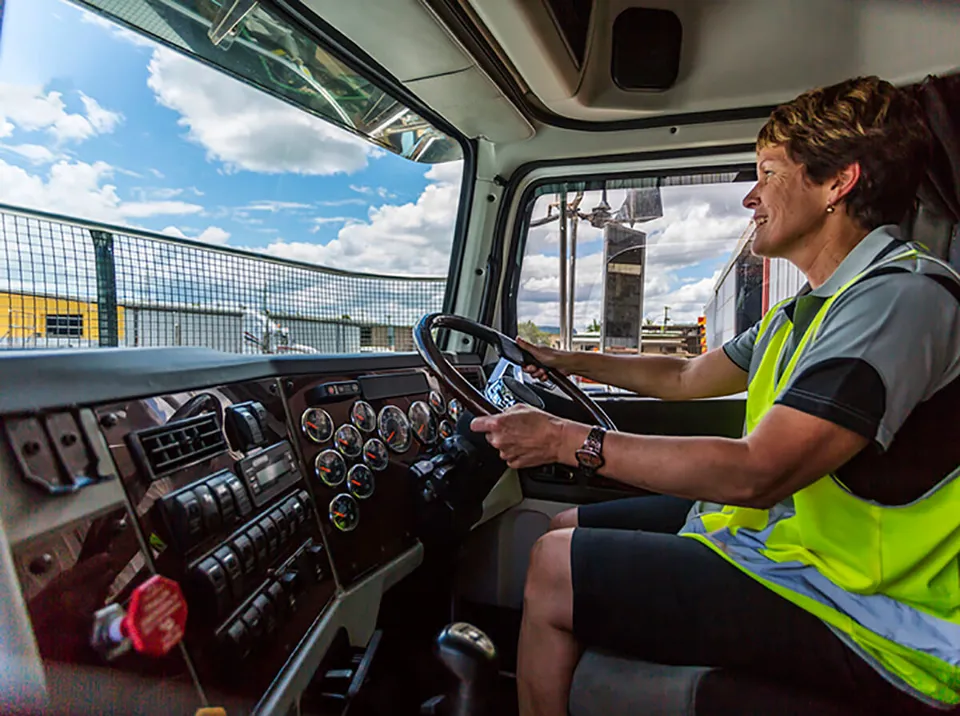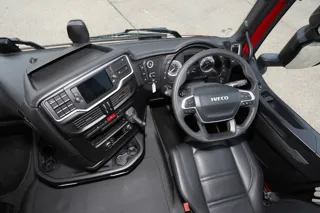The Government has announced changes to the HGV driver test in order to free up capacity for 50,000 additional tests per year.
A new streamlined test means drivers will only need to take one test to drive both a rigid and articulated lorry, rather than having to take two separate tests (spaced three weeks apart). This, according to the Government, will make around 20,000 more HGV driving tests available every year and mean drivers can gain their licence and enter the industry more quickly.
Tests will also be made shorter by removing the ‘reversing exercise’ element – and for vehicles with trailers, the ‘uncoupling and recoupling’ exercise – and having it tested separately by a third party. This part of the test is carried out off the road on a manoeuvring area and takes a significant amount of time. Testing such manoeuvres separately will free up examiner time, meaning they can carry out another full test every day.
Car drivers will no longer need to take another test to tow a trailer or caravan, allowing roughly 30,000 more HGV driving tests to be conducted every year.
Car and trailer driving tests will no longer be available after September 20, 2021. The DVLA will update driving licence records automatically. The category B+E will be added to photocard driving licences when they are renewed.
This new legislation is changing previous EU regulations which the UK is no longer obliged to use.
Transport Secretary Grant Shapps said: “From Inverness to St Ives, HGV drivers are helping to keep the country running, and have been throughout the pandemic. The shortage of drivers is a global problem, but we’ve been taking action here in the UK to help industry leaders attract drivers and build a more resilient sector.
“We’ve already delivered 50% more tests than were available before the pandemic, but today’s additional measures will deliver up to 50,000 more a year, helping more and more people to kickstart their career as a well-paid HGV driver.”
The changes follow a public consultation over the summer, which saw thousands of respondents, including industry leaders, support the move as a positive step to help the sector tackle the lorry driver shortage currently affecting countries around the world.
The Government says the standard of driving required to drive an HGV will not be affected and any driver who does not demonstrate utmost competence will not be granted a licence.
Ahead of the announcement, RED Driver Risk Management said it believes the move to make it easier for drivers to be allowed to drive specialised vehicles not only smacks of desperation, but undermines the relentless work the driver training industry has put in to make the UK’s roads safer over the years.
Ian McIntosh, CEO of RED Driver Training, explained: “No doubt stung by negative media coverage of empty supermarket shelves, and with driver shortages impacting upon freight distribution in the UK, the Government is seemingly panicked into being seen to do something, rather than actually thinking through the issues these proposals raise.
“For example, removing the need for an additional test for B+E entitlement for drivers to be able to drive car and van trailer combinations is a dangerous step backwards. It will expose more businesses, their employees and other road users to increased risk.”
Figures from the DVSA (Driver and Vehicle Standards Agency) show that the national pass rate for B+E driving tests was 69.6% in 2019/20 and only 58% for 2020/21. In other words, between 30-42% of people taking this test are unable to demonstrate the minimum standard of driving and competence to tow loaded trailers on the road on at least their first attempt.
Matt Hammond, head of fleet at M Group Services, said: "Whilst the overhaul will increase the capacity for HGV tests it doesn’t answer the underlying issue surrounding how HGV drivers are perceived and treated. The issue might be associated with Brexit and Covid but in reality, the issue of drivers leaving the profession has been one that supersedes both of these events.
"Why would anyone want a career that takes them away from home for up to 5 nights each week, expected to park in lay-bys or at best, poor service stations with limited facilities and having to pay top dollar for the privilege. We as an industry need to rethink how we treat our drivers and the expectations we put in them.
"Only then will new drivers want to come into the profession."























Login to comment
Comments
No comments have been made yet.